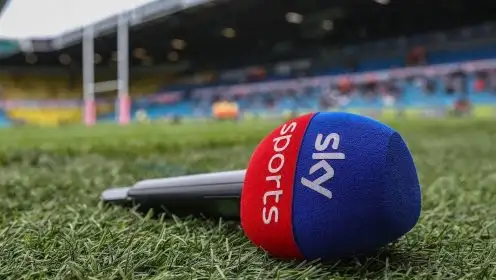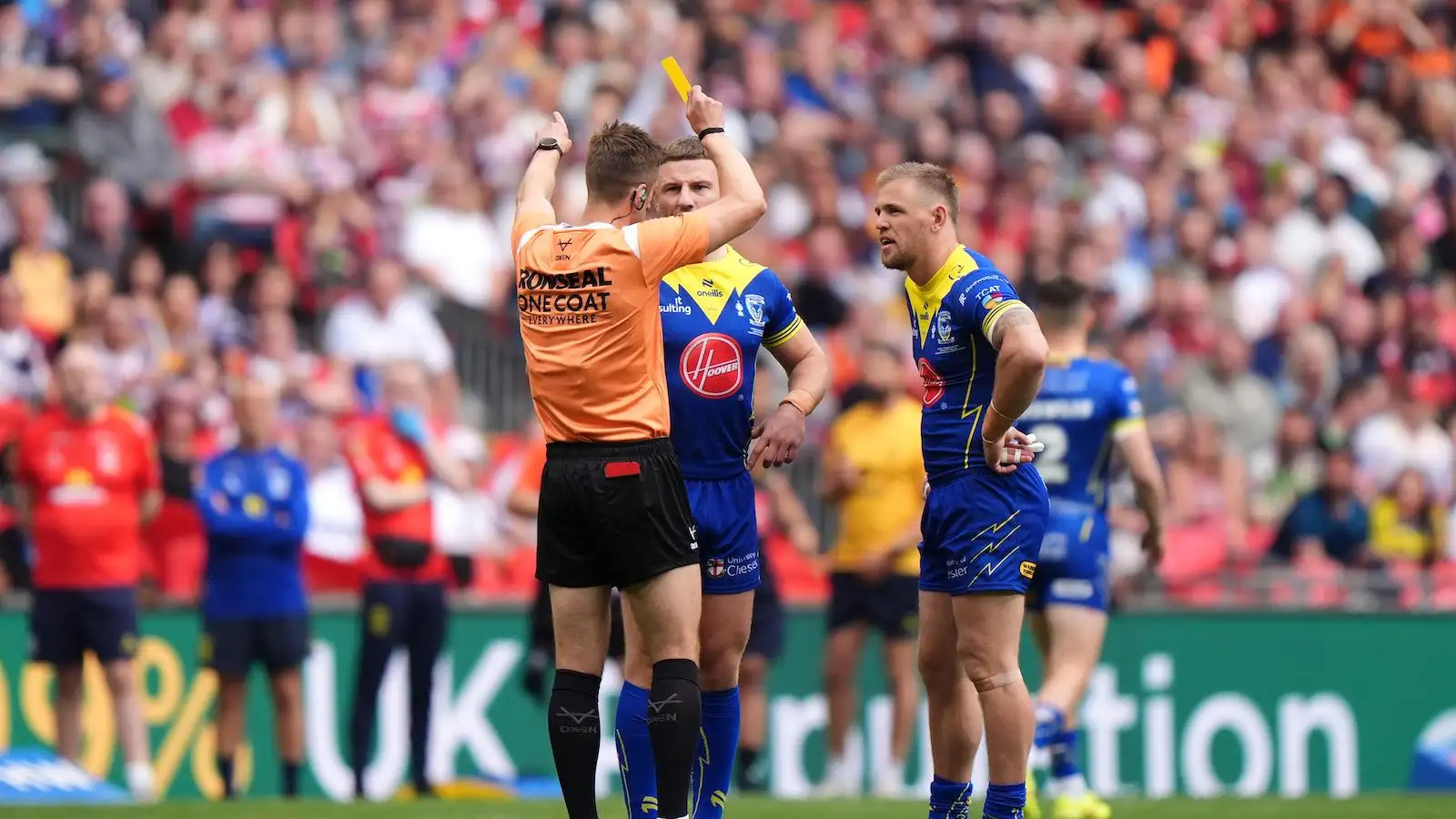Explaining how Super League’s new disciplinary system will work including unique loopholes

The new disciplinary process for 2025 is going to get people talking.
Super League’s disciplinary process has been overhauled like never before heading into 2025: with the introduction of a new points-based system that will determine how long players are banned for.
Instead of cases being judged on their own individual merit to dictate suspensions, players will now accrue points over a 12-month period in Super League and beyond.
Every charge of on-field misconduct is worth a certain number of points, and if charged, that is added to a player’s personal record. Once they reach the threshold of a certain number of points, they incur a suspension with immediate effect.
But it is a complicated process – and there are unique loopholes which will need to be factored into the equation. Here is everything you need to know about how it all works.
The charges
From now on, every incident that is charged by the Match Review Panel results in points. Those points and charges are:
- Grade A: 1 point
- Grade B: 3 points
- Grade C: 5 points
- Grade D: 12 points
- Grade E: Refer to Tribunal
That is an extremely simple part of the equation: it’s what comes next that makes things interesting.
Thresholds for suspension
If a player is charged with, for example, a Grade B, then they are handed three points. That goes onto their record for the next 12 months. So again, as an illustrative measure, if a player is charged today (January 11 2025), that will count until January 11 2026. After which time, those three points will be removed.
But it is the number of points a player accrues in any 12-month period that is important. When a player’s personal record reaches a certain number of points, they incur a suspension. Anything from 0 up to 5 points means no suspension. But it is when a player gets to 6 points that things start to get serious. Those benchmarks are:
- 6-11 points: one-match ban
- 12-17 points: two-match ban
- 18-23 points: three-match ban
- 24-29 points: four-match ban
- 30-35 points: five-match ban
- 36-38 points: six-match ban
- 39-41 points: seven-match ban
- 42-44 points: eight-match ban
- 45-47 points: nine-match ban
- 48-50 points: ten-match ban
- 51-53 points: eleven-match ban
- 54+ points: twelve-match ban
That means players with heavy disciplinary records are going to seriously be in danger of regular suspensions. If a player, for example, has 19 points on their record and they are charged with a Grade A offence, which is worth one point, that takes them to 20 points.
That would mean the most minor of offences would, because of the player’s poor track record, result in a three-match ban. Whereas a player with two points on their record that gets the same charge would not be suspended at all.
The system effectively rewards players who do not fall foul of the rules as often as repeat offenders. Which means some players are going to be sat down for longer periods without question.
Loopholes
There are, as you would expect, particular nuances and loopholes to this new system that will make things slightly complex – and as such, they are worth remembering.
First, when an incident of misconduct results in an opponent being removed from the field of play and they are unable to return, the offending player will have an extra three points added to their disciplinary record by default.
To illustrate, a Grade B high tackle that results in a player failing a HIA would effectively be worth SIX points on a player’s record. If the player returned, the offender would only be punished to the tune of three points.
Supporters have also questioned whether or not red cards early into games should count on a player’s suspension, as they have effectively missed one game with the dismissal. That will now be applied to an extent; if a player is charged with on-field misconduct and is sent off in the first half as a result, two points will be taken from their disciplinary points tally.
A player sent off in the second half that is charged with on-field misconduct will have one point removed from their record.
The final loophole is a very, very important one to make. Clubs threw appeals at charges on a frequent basis in 2024 but there is a deliberate attempt to try and cut down on that in the new system.
If a player is charged with a Grade A-D offence and his or her club appeal that charge, losing the appeal will see an extra FIVE points added to a player’s total. In short, frivolous appeals will now be punished.
All understood? No, us neither. But we’ll pick it up as we go.. right?
SATURDAY’S READS ON LRL
👉🏻 Salford player sales update as possible salary cap exemptions explained
👉🏻 My Ultimate Team: Ryan Hall’s best 1-13 including Leeds Rhinos, Hull KR legends
👉🏻 Jake Connor reveals family tragedy fuelling Leeds Rhinos ambitions
👉🏻 Super League clubs lodge interest in Nene Macdonald with suitors revealed



